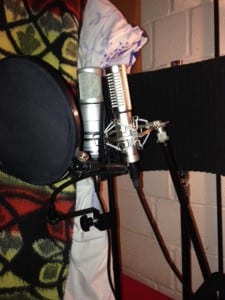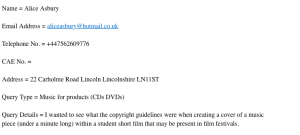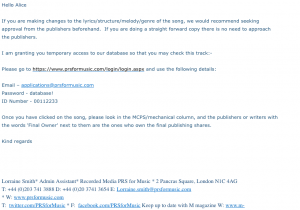For my research I watched a fair few interviews with arguably 2 of the biggest music composers for film there is. Hans Zimmer and John William have created a vast catalogue of brilliant film music. Learning through interviews there methods to creating something of this scale felt vital as a composer to learn. One trait I learnt in both aspects was there close relationship towards there directors and the film process as a whole. They were constantly kept informed by the director but at the same time left to be creative and trusted to make something that fitted.
John Williams talked in one interview about creating the Indiana Jones theme tune. He talks about how the main theme itself is actually really simple and through spending a lot of time on the small section of notes they become sort of obvious and expected which is a good thing when composing for what may become a classic. I also noticed that they both went to great lengths to get to know the characters to create these themes. One example of particular interest was Zimmer talking about how he created the Joker theme for the newest trilogy of Batman films. He wanted something piercing that would not only scare the audience but intrigue them. He did this through creating about 9000 bars of unsettling sounds as he explains here.
In a different interview Christopher Nolan director of many major films wanted to have Zimmer create something that wasn’t necessarily what the genre of the film was but more on the key characters. He did this through giving Zimmer just a section of a script that described a son’s relationship with his father. This film later ended up being Interstellar, which was a massive sci-fi film. This is a good example of the director taking control and really understanding what he wanted the music to portray rather than the genre of the film itself.
Although these composers and directors are hugely successful I think it is important to research examples of what they have done in the past as they have achieved some truly incredible pieces of music that fit perfectly to the films. Putting this into context with my own work is not that easy; due to the nature of the directors I did not get a lot of guidance – which was good in a way as it tested my own skill. However, through being on set, having various copies of the script and working on post it enabled me to really understand the character of George and what the story was trying to achieve. The music needed to have this ability to make the audience feel sorry for this character (George) without giving to much away – even when the big reveal happens at the end. I also wanted to add a glimmer of hope to the music, I felt I achieved this through the two main chords which appear throughout. These examples are on a different level to what my film is, but the techniques used by Zimmer and Williams can still be used in similar ways.


